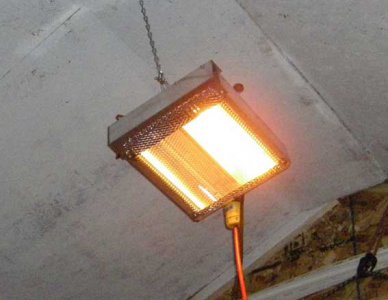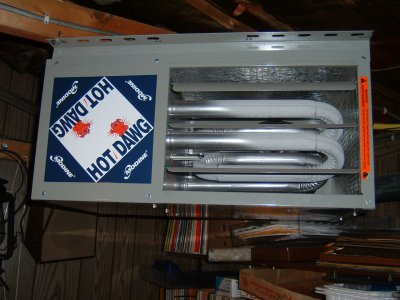- Joined
- Jan 28, 2011
- Messages
- 3,586
I have been using a small radiant heater suspended from the ceiling. Having the unit facing down to heat the equipment, floor and you is making it much more comfortable to work and you do not need as high temperature as you would think. Mind you my shop is small, in fact tiny compared to some but last winter I left it turned on 24/7 on just 1 Quartz tube (400 watt) and the shop stayed near 50F most days and when I wanted more I would turn both tubes on. I have a garage door as well as a man door. Weatherstriping is key on either one. Warm to the touch equipment is so nice. No issues for me and the operational cost was not seen on the bills as much I had thought it may have been.
As for hot water tank for home heating. Works great if designed properly. a good friend has a 2400 sq ft home and he uses a 60 gal gas fired tank for his heating. It is radiant floor not forced air. So it can be done.
My small bungalo is 867 sq ft and the furnace is a 2 stage unit 20K and 40K BTU. Rarely the second burner turns on. Usually it is only on recovery in the morning or if the winds are a howling. As I have been sealing leaks as they come to light. this has been reduced as well.
Pierre

As for hot water tank for home heating. Works great if designed properly. a good friend has a 2400 sq ft home and he uses a 60 gal gas fired tank for his heating. It is radiant floor not forced air. So it can be done.
My small bungalo is 867 sq ft and the furnace is a 2 stage unit 20K and 40K BTU. Rarely the second burner turns on. Usually it is only on recovery in the morning or if the winds are a howling. As I have been sealing leaks as they come to light. this has been reduced as well.
Pierre


